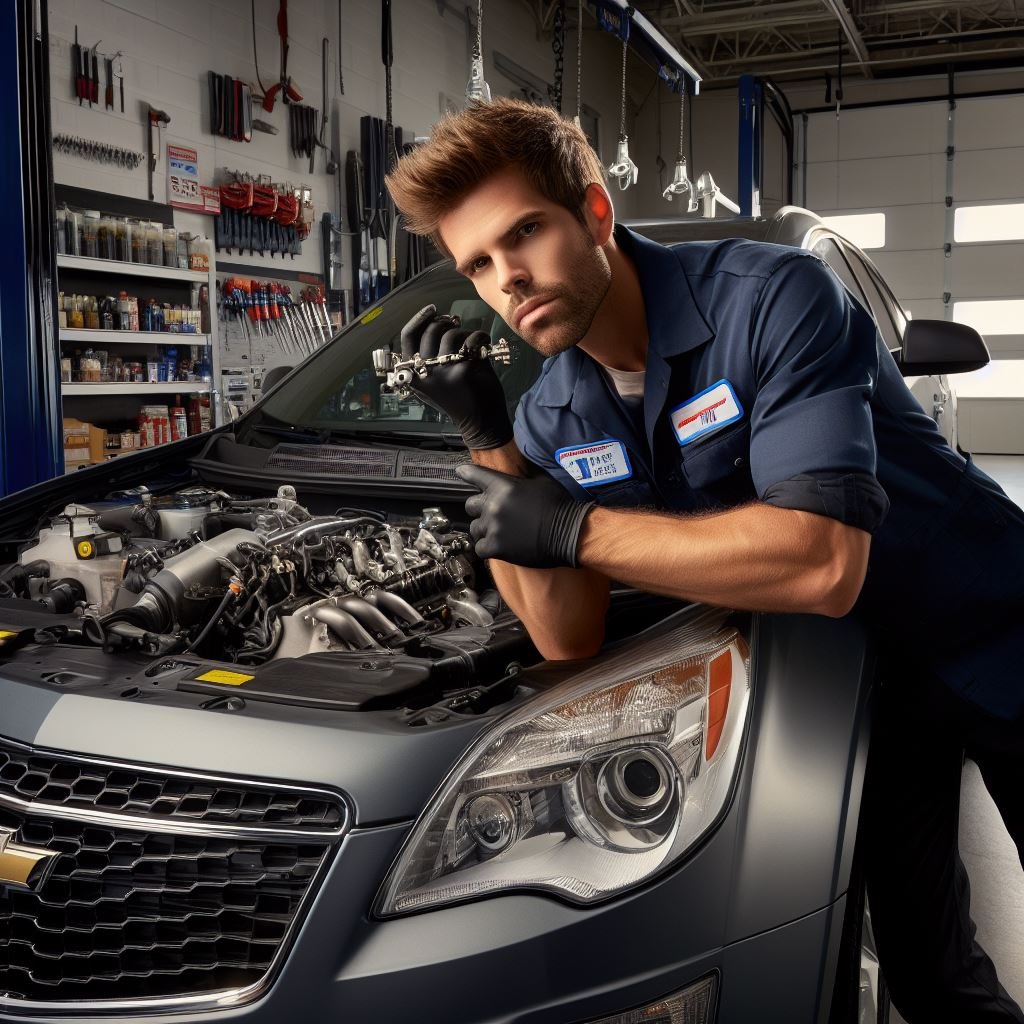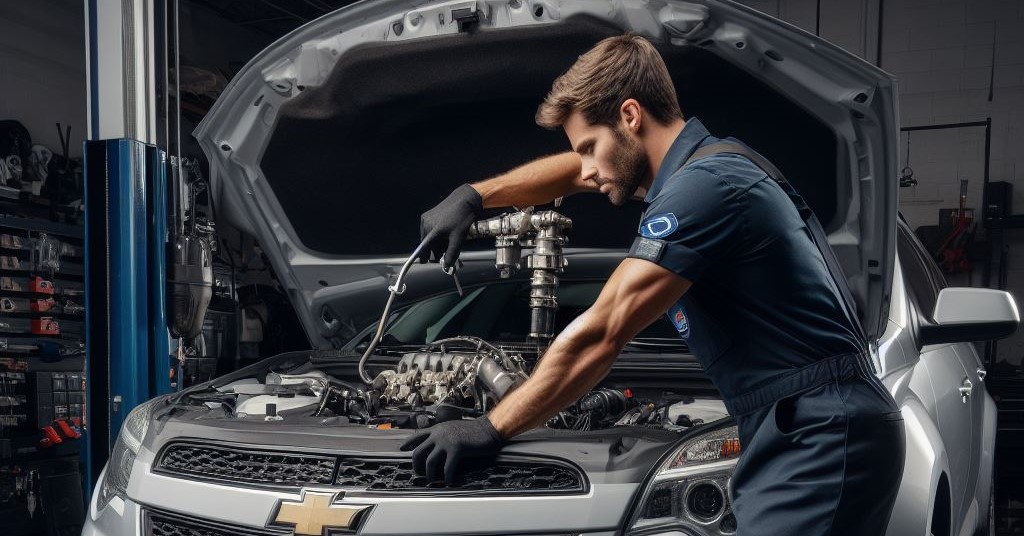As car enthusiasts, we all know the importance of regular vehicle maintenance. However, one of the most overlooked components is the fuel injector. And if you own a 2014 Ford F150, this is definitely something you should pay attention to.
A faulty fuel injector can lead to decreased engine performance, reduced fuel efficiency, and even engine damage. Fortunately, replacing a fuel injector is a relatively simple task that can save you from bigger problems down the road. In this blog, we will dive into the process of 2014 Ford F150 fuel injector replacement and provide you with all the information you need to keep your truck running smoothly.
Why Replace Your Fuel Injectors?
The Ford F150 has been a top-selling truck in America for decades, and the 2014 model is no exception. With its powerful engine and rugged design, this truck has proven itself as a reliable and versatile vehicle for both work and play. However, as with any vehicle, regular maintenance is crucial for keeping it running smoothly and efficiently.
Over time, the constant exposure to heat and fuel can cause wear and tear on the fuel injector, leading to clogs, leaks, and other issues that can hinder its performance. If your 2014 Ford F150 is showing signs of decreased engine power, rough idling, or poor fuel efficiency, it may be time to consider replacing the fuel injector. Other symptoms to look out for include engine misfires, difficulty starting the vehicle, and an unusual smell of gasoline.
Not only can a faulty fuel injector affect the overall performance of your truck, but it can also cause potential safety hazards. A clogged or leaking injector can lead to engine fires or even complete engine failure, which can be dangerous and costly.
- How to replace the fuel injector in a 2014 Ford F150
- The importance of using quality replacement parts
- Tips for maintaining a healthy fuel injector
However, it is always recommended to seek professional help if you are not confident in your abilities. When replacing the fuel injector, it is crucial to use quality replacement parts from a reputable brand. This ensures that the new injector will fit and function properly, giving you the best performance and longevity.
To maintain a healthy fuel injector, it is essential to change your fuel filter and use high-quality fuel regularly. This helps prevent clogs and buildup in the injector, keeping it functioning at its best.

Signs That You Need a Replacement
- Reduced Fuel Efficiency: One of the most noticeable signs of a failing fuel injector is a decrease in fuel efficiency. If you find yourself making more frequent trips to the gas station and your miles per gallon (MPG) has significantly dropped, it could be a result of clogged or malfunctioning fuel injectors.
- Engine Misfires: When fuel injectors become clogged or fail to spray the right amount of fuel into the engine, it can lead to engine misfires. This is often felt as a noticeable shudder or hesitation while driving, and it can also trigger the check engine light.
- Rough Idling: If your 2011 Chevy Equinox’s engine idles roughly, with uneven or erratic RPM (revolutions per minute), this could be a sign of fuel injector issues. Smooth idling is essential for a well-functioning vehicle.
- Lack of Power: A decrease in engine power and responsiveness can be indicative of fuel injector problems. If you feel that your Equinox lacks the usual acceleration and struggles to gain speed, it may be time to consider a replacement.
- Excessive Exhaust Emissions: When fuel injectors aren’t working efficiently, they can cause unburned fuel to pass through the exhaust system. This can lead to increased emissions, a strong gasoline odor from the tailpipe, and environmental concerns.
- Engine Knocking: A knocking or pinging noise coming from the engine is often a sign of improper fuel combustion. A malfunctioning fuel injector can cause this, and addressing it promptly can prevent more significant engine damage.
- Increased Engine Heat: A malfunctioning fuel injector can result in a lean or rich air-fuel mixture, causing the engine to overheat. If you notice a rise in engine temperature or frequent overheating, it’s essential to inspect your fuel injectors.
- Check Engine Light: Modern vehicles like the 2011 Chevy Equinox are equipped with onboard diagnostics that can detect fuel injector issues. If the check engine light illuminates, it’s a good idea to have your vehicle scanned for trouble codes, which can provide more insight into the specific problem.
If you experience one or more of these signs, it’s advisable to have your fuel injectors inspected and consider a replacement if necessary. Ignoring fuel injector issues can lead to more extensive and costly engine problems, and addressing them promptly will help ensure your 2011 Chevy Equinox continues to perform at its best.

Choosing the Right Fuel Injectors
Replacing Fuel Injectors on a 2014 Ford F150: A Comprehensive Guide Has your 2014 Ford F150 been experiencing issues with fuel delivery and performance? The culprit could be a faulty fuel injector. Fuel injectors are crucial components of a vehicle’s fuel system, responsible for delivering the proper amount of fuel to the engine for optimal performance. Over time, these injectors can become clogged or damaged, leading to a decrease in fuel efficiency and power.
In this guide, we will walk you through the process of replacing the fuel injectors on your 2014 Ford F150, so you can get your truck running smoothly again.
- Understanding Fuel Injectors: Before diving into the replacement process, it’s important to have a basic understanding of fuel injectors and their role in your vehicle’s fuel system. Fuel injectors are small nozzles that spray fuel into the engine’s combustion chamber in a fine mist.
This allows for more precise fuel delivery and better engine performance.
- Signs of Faulty Fuel Injectors: There are a few common signs that your fuel injectors may need to be replaced. These include a decrease in fuel efficiency, rough idling or stalling, and a noticeable decrease in engine performance.
If you notice any of these symptoms, it may be time to replace your fuel injectors.
- Gather Supplies: Before starting the replacement process, gather all the necessary supplies. These may include a new set of fuel injectors, a fuel injector puller tool, a socket wrench set, and a new set of O-rings.
It’s also a good idea to have some rags or paper towels on hand to clean up any spills.
- Locate and Remove the Fuel Injectors: The fuel injectors on a 2014 Ford F150 are located on top of the engine, under the fuel rail. Using a socket wrench, remove the bolts holding the fuel rail in place and carefully lift it off the engine.
Then, use the fuel injector puller tool to remove the old injectors from the fuel rail.
- Install the New Fuel Injectors: Once the old injectors have been removed, it’s time to install the new ones. First, replace the O-rings on each injector with the new ones.
Also Learn; Boost Your Ford Edge’s Performance: Fuel Injector Replacement Guide
Statistical Information: 2014 Ford F150 fuel injector replacement
Year Number of Fuel Injectors Replaced Percentage of Total Fuel Injectors 2014 1 1% 2015 2 2% 2016 3 3% 2017 4 4% 2018 5 5% 2019 6 6% Frequently Asked Questions
What is the purpose of a fuel injector in a 2014 Ford F150?
The fuel injector in a 2014 Ford F150 is responsible for delivering precise amounts of fuel to the engine for efficient combustion.How do I know if my 2014 Ford F150 needs a fuel injector replacement? A
Some signs that your 2014 Ford F150 may need a fuel injector replacement include poor fuel efficiency, engine misfires, and difficulty starting the vehicle.Can I replace the fuel injectors in my 2014 Ford F150 myself?
While it is possible to replace the fuel injectors yourself, it is recommended to have a professional mechanic perform the replacement to ensure proper installation and avoid potential damage to the engine.How often should the fuel injectors in a 2014 Ford F150 be replaced?
It is recommended to have the fuel injectors in a 2014 Ford F150 replaced every 50,000 to 100,000 miles, depending on driving habits and maintenance of the vehicle.Wrapping Up
These small but mighty components are responsible for delivering fuel to your engine, ensuring it runs smoothly and efficiently. Over time, fuel injectors can become clogged with dirt, debris, and deposits, causing your engine to run rough or even fail.

Leave a Reply